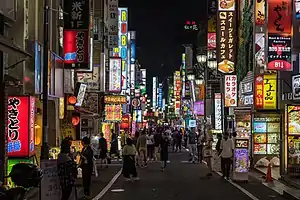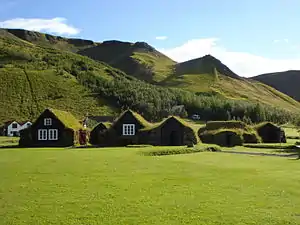Island country
An island country or island nation is a country whose primary territory consists of one or more islands or parts of islands. As of 1996, 25.2% of all independent countries were island countries.[1] Island nations, because of their geography, tend to be significantly more vulnerable to climate change than other nations, in part because of sea level rise, saltwater intrusion, and impacts on food supply.
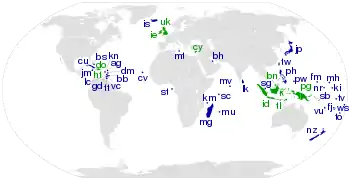
Politics
Historically, island countries have been less prone to political instability than their continental counterparts. The percentage of island countries that are democratic is higher than that of continental countries. [1]
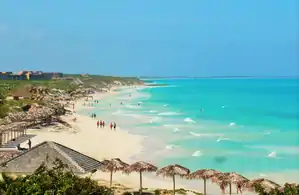
.
War
Island countries have often been the basis of maritime conquest and historical rivalry between other countries.[2] Island countries are more susceptible to attack by large, continental countries due to their size and dependence on sea and air lines of communication.[3] Many island countries are also vulnerable to predation by mercenaries and other foreign invaders,[4] although their isolation also makes them a difficult target.
Natural resources
Many developing small island countries rely heavily on fish for their main supply of food.[5] Some are turning to renewable energy—such as wind power, hydropower, geothermal power and biodiesel from copra oil—to defend against potential rises in oil prices.[6]
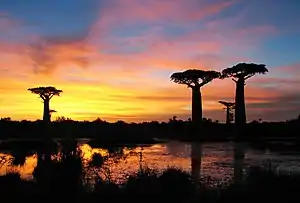
Geography
Some island countries are more affected than other countries by climate change, which produces problems such as reduced land use, water scarcity, and sometimes even resettlement issues. Some low-lying island countries are slowly being submerged by the rising water levels of the Pacific Ocean.[7] Climate change also impacts island countries by causing natural disasters such as tropical cyclones, hurricanes, flash floods and drought.[8]
Climate change
Because of their low lying, ocean-fronted borders, relatively small land masses, and exposure to extreme weather and climate variability, island nations are especially vulnerable to global warming. As sea levels continue to rise, island peoples and cultures are being threatened. There are small and low populated islands without adequate resources available to protect the island and its human and natural resources. With the risks to human health, livelihoods and physical space in which to occupy, the pressure to leave the island is often barred by the inability to access the resources needed to relocate.
The former President of the Republic of the Marshall Islands, Christopher Loeak, said "In the last year alone, my country has suffered through unprecedented droughts in the north, and the biggest ever king tide in the south; and we have watched the most devastating typhoons in history leave a trail of death and destruction across the region."[9] Efforts to combat these environmental changes are ongoing and multinational. Particularly notable is the adoption of the Paris agreement at the UN Climate Summit in 2015.Economics
Many island countries rely heavily on imports and are greatly affected by changes in the global economy. Due to the nature of island countries their economies are often characterised by being smaller, relatively isolated from world trade and economy, more vulnerable to shipping costs, and more likely to suffer environmental damage to infrastructure; exceptions include Japan and the United Kingdom.[10][11][12] The dominant industry for many island countries is tourism.[13]
Composition
Island countries are typically small with low populations, although some, like Indonesia and Japan are notable exceptions.[14]
Some island countries are centred on one or two major islands, such as the United Kingdom, Trinidad and Tobago, New Zealand, Cuba, Bahrain, Singapore, Iceland, Malta, and Taiwan. Others are spread out over hundreds or thousands of smaller islands, such as Indonesia, the Philippines, The Bahamas, Seychelles, and the Maldives. Some island countries share one or more of their islands with other countries, such as the United Kingdom and Ireland; Haiti and the Dominican Republic; and Indonesia, which shares islands with Papua New Guinea, Brunei, East Timor, and Malaysia. Bahrain, Singapore, and the United Kingdom have fixed links such as bridges and tunnels to the continental landmass: Bahrain is linked to Saudi Arabia by the King Fahd Causeway, Singapore to Malaysia by the Johor–Singapore Causeway and Second Link, and the United Kingdom has a railway connection to France through the Channel Tunnel.
Geographically, the country of Australia is considered a continental landmass rather than an island, covering the largest landmass of the Australian continent. In the past, however, it was considered an island country for tourism purposes[15] (among others) and is sometimes referred to as such.[16]
List
See also
- Archipelagic state
- Effects of climate change on island nations
- Landlocked country
- List of Caribbean island countries by population
- List of island countries
- List of islands by area
- List of islands (by country)
- List of sovereign states and dependent territories in Oceania
- List of sovereign states and dependent territories in the Indian Ocean
- Microstate
- City state
- Pacific Islands Forum
- Small Island Developing States
- Thalassocracy
References
- Ott, Dan (1996). Small is Democratic. Routledge. p. 128. ISBN 0-8153-3910-0. Retrieved March 23, 2019.
- Chasle, Raymond (1 Oct 1986). "The quest for identity. (island countries)". UNESCO Courier. Retrieved 2009-02-01.
- Perry, Walt L.; Robert W. Button; Jerome Bracken; Thomas Sullivan; Rand Corporation; United States Navy; Jonathan Mitchell (2002). Measures of Effectiveness for the Information-age Navy. Rand Corporation. p. 7. ISBN 0-8330-3139-2.
- WREN, CHRISTOPHER S. (December 9, 1989). "Mercenary Holding Island Nation Seeks Deal". New York Times. Retrieved 2009-02-01.
- "Many of the world's poorest people depend on fish". Food and Agriculture Organization of the United Nations. 2005-06-07. Retrieved 2017-09-30.
- Xingwei, Huang (2008-10-17). "Pacific Islands countries switch to renewable energy source due to increasing fuel prices". Archived from the original on 2015-04-02. Retrieved 2009-02-01.
- "Leader of disappearing island nation says climate change an issue of survival, not economics". June 5, 2008. Retrieved 2009-02-01.
- "FAO: Climate change threatens food security of Pacific island countries". December 2, 2008. Retrieved 2009-02-01.
- Loeak, Christopher Jorebon. "A Clarion Call From the Climate Change Frontline." The Huffington Post. TheHuffingtonPost.com, undated, accessed 28 January 2016. http://www.huffingtonpost.com/christopher-jorebon-loeak/a-clarion-call-from-the-c_b_5833180.html. Website.
- "WTO/FORSEC Trade Policy Course for Pacific island countries". 9 March 2001. Retrieved 2009-02-01.
- "NZ calls for global solutions to problems faced by small island nations". 2005-01-18. Archived from the original on 2012-10-24. Retrieved 2009-02-01.
- Garg, Sarika. "U.N. ambassador gives keynote". Retrieved 2017-09-05.
- "China enlists Pacific island countries as tourist destinations, XINHUA". The America's Intelligence Wire. 10 August 2004. Retrieved 1 February 2009.
- "Wen pledges new aid to Pacific countries". International Herald Tribune. April 5, 2006. Retrieved 2013-08-21.
- "Australian Naval Defence". The Brisbane Courier. 24 July 1897. Retrieved 2009-01-31.
- "China, Pacific island countries discuss cooperation at forum meeting". Retrieved 2009-02-01.
